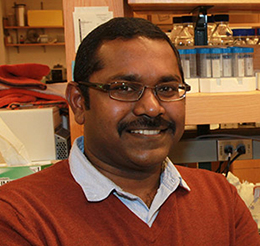This AHNS online physician locator helps you find a match for your medical needs.
Members: How to Modify your profile
- Go to the AHNS Member Panel and click the “Create/Edit Your Public Profile” link there.
- Members are encouraged to add social media handles, in order to be tagged on AHNS Instagram and Twitter pages. Both AHNS members and non members can view profiles
- Log into your membership account and update your profile and bio
- Having trouble accessing your account?
Instructions on using the search:
- The easiest way to search is to drag and zoom the map below until you are seeing your desired geographical area. Once there, click on the pins to see member information
- You may use the geosearch box to autocomplete an area and search that way
- If you wish to search by other criteria, use the text search box
SrinivasVinod Saladi
Mass Eye and Ear Infirmary/Harvard Med School & Broad Institute of MIT and Harvard
- 25
2W Rm 220
Boston, MA 02114
United States
Map It
My lab focuses on delineating the mechanisms by which deregulated epigenetic factors contribute to cancer. It is important to have a detailed understanding of the deregulated cancer-associated transcription and epigenetic machinery to treat cancer. TCGA analysis has revealed multiple epigenetic cofactors as amplified or mutated in SCC. My own work has revealed novel epigenetic factor, ACTL6A and RUVBL1, are amplified in HNSCC, contributing to regenerative proliferation ( Cancer Cell, 2017, Oral Oncology, 2020). These factors are catalytic or key components of chromatin remodeling complexes and histone modifying enzymes. The gain and loss of functions of multiple epigenetic factors identified through genomic analysis and their contribution to tumorigenesis needs to be understood to develop targeted therapy in cancer. One of the major aims of the lab is to dissect the mechanisms by which these complex epigenetic and transcription factors drive tumor specific epigenetic plasticity in Squamous Cell Carcinoma (SCC).
In summary, my lab integrates genomics, epigenetics, and signaling to dissect the mechanisms contributing to head and neck cancer maintenance and progression.
